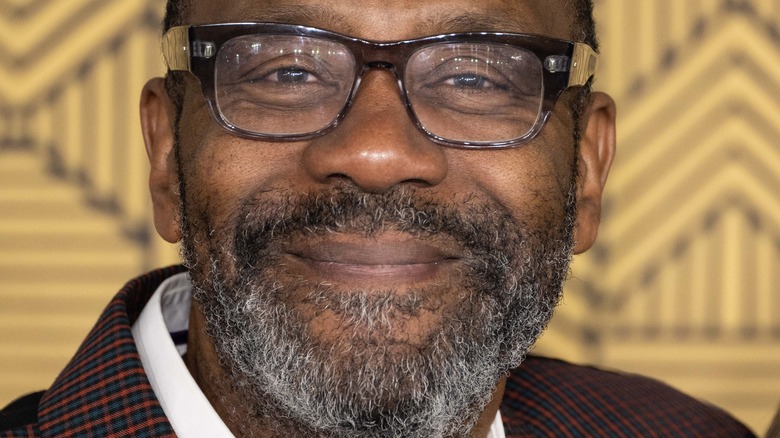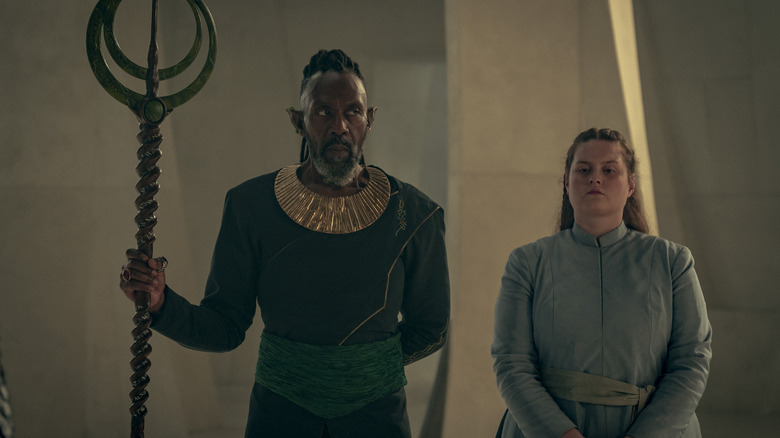The Witcher: Blood Origin's Lenny Henry Believes Sign Language Education Should Be Mandatory
Netflix is putting all of its chips in on the "Witcher," hoping to give it the true franchise treatment. Unfortunately for the streaming service, the franchise has seen its fair share of setbacks in recent weeks. First, leading man Henry Cavill departed the series, with Liam Hemsworth taking over the role of Geralt. Then, Netflix's prequel series "The Witcher: Blood Origin" holds an embarrassing record for Netflix in regard to its critical reception.
"Blood Origin" attempted to give "Witcher" fans a look at the Continent's first Witcher, the Elven civilization, and the Conjunction of the Spheres. Taking place over a thousand years before "The Witcher," the prequel introduces numerous new characters to the franchise as it further builds upon the world established in the original series. While "Blood Origin" brings in many interesting new characters, that's primarily where their stories end. Michelle Yeoh's elven warrior Scían is a cool addition to the series, and Minnie Driver's mysterious Seanchai is someone fans hope to see more of in "The Witcher." Unfortunately, not even the exciting characters could save the series, which fans and critics both agree isn't great (via Rotten Tomatoes).
Where "The Witcher: Blood Origin" does succeed is giving an adequate representation of deaf actors. Actor Amy Murray plays Fenrik, a druid apprentice to Lenny Henry's villainous Balor. Murray, a deaf actor herself, plays a fairly sizeable role in the journey that leads to the Conjunction of the Spheres. Balor and Fenrik communicate through sign language, and after acting alongside Murray, Henry believes sign language should be included in all schools.
Acting alongside Amy Murray opened Lenny Henry's eyes
In "The Witcher: Blood Origin," Lenny Henry and Amy Murray share a lot of scenes together. Understandably, this means Henry and Murray spent a lot of time together on and off-screen. While the two actors used a translator to communicate most of the time, acting alongside a person with a hearing impairment put things into perspective for Henry.
"I had to do lots of scenes where she was signing, and I don't sign," Henry told Insider. "So there was quite a lot of laughing as she was saying things, and I was missing my cues because I was fascinated with her fingers, and I wasn't really listening to what the interpreter was saying. I was trying to figure it out for myself because [Balor was] supposed to be able to understand sign language, so it was very difficult. We live in a world where signing should be a language that's mandatory at school."
In the same interview, Henry revealed that Murray left a lasting impression on the actor. His latest book, "The Book of Legends," features a deaf character and a page dedicated to sign language, both of which Murray inspired.
Murray's performance in "Blood Origin" is just the latest in an ever-growing wave of representation for deaf actors. Most notably, Academy Award winning film "CODA" set records with a predominantly deaf cast, thus showing the award show and audiences the importance of deaf representation in Hollywood (via Apple). Although "Blood Origin" was not praised like "CODA," it's still a good step forward in terms of representation.

